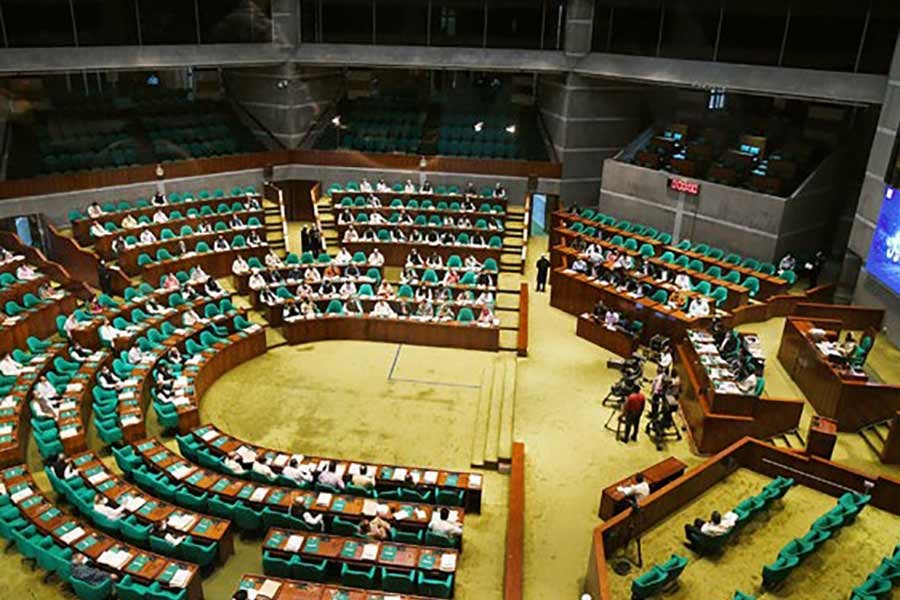The parliament has passed a Tk 6.04 trillion budget for the 2021-22 fiscal year starting on July 1.
The budget passed by voice vote during a parliamentary session chaired by Speaker Shirin Sharmin Chaudhury on Wednesday, reports bdnews24.com.
The budget passed on Tuesday after the approval of several amendments.
The budget will need the president’s approval before it is implemented over the course of fiscal 2021-22.
On June 3, Finance Minister AHM Mustafa Kamal presented a draft of the budget to parliament.
The draft was then debated among members of parliament, but debate on the budget has been limited this year, as it was last year.
The budget for 2020-21 was passed after two days of discussion amid the pandemic. General discussion of the budget for 2021-22 was held over four days after a week-long break. Another two days of debate took place after another 10-day break.
Over the course of the six days, the budget debate took up approximately 15 hours. Over 100 parliamentarians took part.
The debate is usually much longer, with discussions usually ranging from 50 to 65 hours. But time was cut short by the pandemic, which had also forced last year’s discussion to be limited to 5 hours and 18 minutes.
THE BUDGET AT A GLANCE
The budget for the coming fiscal year is approximately 17.5 per cent of GDP and 12 percentage points higher than the revised budget in fiscal 2020-21.
Like fiscal 2020-21, the upcoming budget faces the challenge of safeguarding an economy hit by the COVID-19 pandemic and developing it further.
In keeping with its vision of propelling the Bangladesh economy to the next level, the Awami League government placed greater emphasis on the development sector in previous years. However, that trend was bucked last year in the wake of the pandemic.
The Annual Development Programme to the tune of Tk 2.25 trillion has already been approved.
As the pandemic-ravaged economy appeared to be turning the tide late last year, hopes of a revival were dented by a second wave of the pandemic in 2021 which once again saw the country enter a lockdown.
Revenue collections have also fallen off the pace for the last two years as trade and commerce reels from the impact of the pandemic.
But the government is seeking to finance 64.45 per cent of proposed expenditures from this sector, setting a revenue target of Tk 3.89 trillion, about an 11 per cent increase over the current fiscal year.
However, the proposed budget runs a record deficit of Tk 2.15 trillion, or 6.2 per cent of GDP, crossing the conventional 'red line' of 5 per cent gap, much of which will be offset by heavy borrowings from domestic and foreign sources. The government plans to borrow Tk 1.01 trillion from foreign sources and Tk 1.13 trillion from domestic sources to cover the shortfall.
In FY21, the government set a GDP growth target of 8.2 per cent which was later revised down to 6.1 per cent in light of the pandemic. This time, Kamal is hoping to achieve 7.2 per cent growth while keeping the inflation rate at 5.3 per cent through the implementation of the budget.


